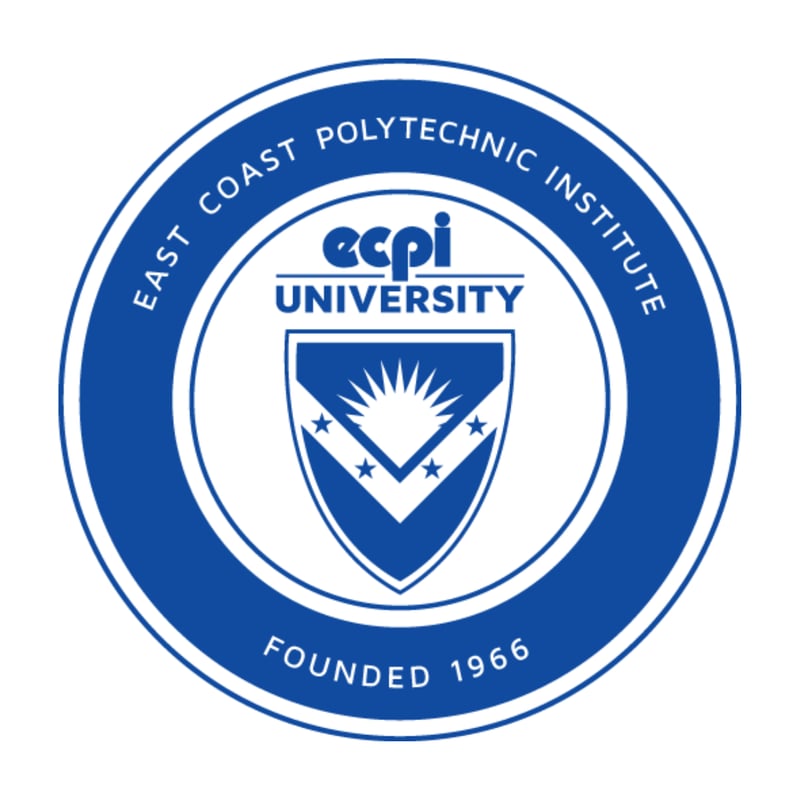
Financial aid (may be available)

No cost info

Financial aid (may be available)

Financial aid (may be available)

Financial aid (may be available)

Financial aid (may be available)

Financial aid (may be available)

No cost info

Financial aid (may be available)

Financial aid (may be available)

Financial aid (may be available)

No cost info
No cost info
Learn about the components of supply chains including supply chain networks, supply chain facilities, transportation, and inventory management as well as how emerging technologies affect them with our Supply Chain Fundamentals Certificate. These courses are perfect for learners seeking to enter the supply chain profession, as well as those who are seeking to enter supervisory roles or enter a new domain within the supply chain.
No cost info
This certificate program provides a foundation in supply chain and logistics management from both a U.S. as well as global perspective, preparing participants for professional careers with manufacturers and distributors, transportation carriers, and logistics service providers.
No cost info
American Military University (AMU) offers a logistics management certificate at the graduate level. It provides in-depth study of logistics and supply chain management with consideration of global impacts.
AMU’s online logistics certificate emphasizes transportation factors related to logistics, especially the maritime industry. The curriculum covers topics such as:
Transportation policy and planning
Transportation management and economics
Port and terminal operations
This program is an appropriate choice for those who wish to increase their knowledge of logistics and supply chain management without committing to a full degree program.
No cost info
No cost info
The online Logistics and Supply Chain Management Certificate from CCU will help you gain a deeper understanding of the processes and fundamentals within supply chain and inventory management, including purchasing and inbound logistics; material handling in distribution centers; warehousing and warehouse management; financial and inventory controls; transportation and distribution; and reverse and global logistics.
No cost info

Financial aid (may be available)

$2,730 total

Financial aid (may be available)
Logistics is an essential aspect of any business or organization that involves the movement of goods and materials. It plays a crucial role in supply chain management, ensuring that products are delivered efficiently and on time. If you are interested in pursuing a career in logistics, taking logistics classes can provide you with the necessary skills and knowledge to excel in this field. In this blog post, we will explore the various logistics classes available near you in New York and how to find the right class for your needs.

Before we dive into the details of logistics classes, let's first understand what logistics is all about. Logistics is the process of planning, implementing, and controlling the efficient flow and storage of goods, services, and related information from the point of origin to the point of consumption. It involves activities such as transportation, warehousing, inventory management, and order fulfillment.
A career in logistics can be rewarding, offering opportunities for growth and advancement. Whether you are looking to start a new career or enhance your existing skill set, taking logistics classes can be a great way to gain the necessary knowledge and skills to succeed in this field.
Logistics is a complex field that involves managing the movement of goods and materials from one place to another. It encompasses various activities, including transportation, inventory management, warehousing, and order fulfillment. Logistics professionals are responsible for ensuring that products are delivered on time and in the most cost-effective manner.
To pursue a career in logistics, you typically need a high school diploma or equivalent. While a college degree is not always required, it can be beneficial in terms of career advancement opportunities. Many vocational training programs and community colleges offer logistics classes that can provide you with the necessary skills and knowledge to excel in this field.
When searching for logistics classes near you in New York, it's important to consider several factors to ensure that you find the right class for your needs. Here are some things to look for:
Accreditation: Make sure the logistics class you choose is accredited by a recognized accrediting body. This ensures that the program meets certain quality standards and that the credits you earn can be transferred if you decide to pursue further education.
Curriculum: Review the curriculum of the logistics class to ensure that it covers all the essential topics and skills you need to succeed in this field. Look for classes that offer a comprehensive overview of logistics principles, transportation management, inventory control, and supply chain management.
Hands-on Training: Practical experience is crucial in the field of logistics. Look for classes that offer hands-on training opportunities, such as internships or simulations, where you can apply the concepts and skills you learn in real-world scenarios.
Instructor Qualifications: The qualifications and experience of the instructors can greatly impact the quality of the logistics class. Look for classes taught by industry professionals who have practical experience in the field of logistics.
Logistics classes typically include a mix of classroom instruction, hands-on training, and group projects. Here's what you can expect from the day-to-day class:
Classroom Instruction: Logistics classes involve lectures and discussions where you will learn about various logistics concepts, principles, and strategies. You will also have the opportunity to ask questions and participate in class discussions.
Hands-on Training: Many logistics classes include hands-on training opportunities where you can apply the concepts and skills you learn in real-world scenarios. This may involve activities such as inventory management simulations or transportation planning exercises.
Group Projects: Collaborative projects are common in logistics classes. Working in groups, you will have the opportunity to apply your knowledge and skills to solve real-world logistics problems. This can help you develop teamwork and problem-solving skills.
After completing a logistics class, you may have the opportunity to pursue certification in this field. While certification is not always required, it can enhance your credentials and make you more competitive in the job market. The certification process typically involves the following steps:
Eligibility Requirements: Each certification program has its own eligibility requirements, which may include a certain level of education or work experience in the field of logistics.
Exam: To become certified, you will need to pass an exam that tests your knowledge and skills in logistics. The exam may cover topics such as transportation management, inventory control, and supply chain management.
Continuing Education: In some cases, you may need to complete continuing education courses or earn continuing education credits to maintain your certification.
Once you have completed a logistics class and obtained the necessary certification, you will be ready to pursue a career in this field. Here are some tips to help you find a job in logistics:
Networking: Networking is an essential part of any job search. Reach out to professionals in the logistics industry, attend industry events, and join professional organizations to expand your network and learn about job opportunities.
Online Job Platforms: Utilize online job platforms, such as Indeed, to search and apply for logistics-related job openings. These platforms provide a central hub for job seekers and employers in the vocational training field.
Resume and Cover Letter: Craft a well-written resume and cover letter that highlight your skills, education, and experience in logistics. Customize your application materials for each job you apply to, emphasizing relevant qualifications.
Internships and Apprenticeships: Consider applying for internships or apprenticeships in the field of logistics. These opportunities can provide valuable hands-on experience and may lead to full-time job offers.
Once you have established yourself as a logistics professional, there are several other classes you can take to further enhance your skills and knowledge in this field. Here are some examples:
Advanced Logistics Management: This class delves deeper into logistics strategies and management techniques, covering topics such as supply chain optimization, risk management, and international logistics.
Warehouse Management: This class focuses on the principles and best practices of warehouse management, including inventory control, space utilization, and order fulfillment.
Transportation Planning: This class explores the various modes of transportation and their role in logistics, as well as transportation planning techniques and strategies.
Supply Chain Analytics: This class introduces you to the use of data analytics in supply chain management, teaching you how to analyze and interpret data to improve logistics efficiency.
Logistics is a dynamic and rewarding field that offers a wide range of career opportunities. By taking logistics classes, you can gain the necessary skills and knowledge to succeed in this industry. Whether you are just starting your career or looking to enhance your existing skill set, there are logistics classes near you in New York that can help you achieve your goals. Remember to consider factors such as accreditation, curriculum, hands-on training, and instructor qualifications when choosing a logistics class. And for all your vocational training needs, visit Dreambound, the largest platform for students to find vocational training programs. Dreambound's mission is to provide all the information students need to find the perfect class.
Dreambound has put together numerous guides to help you navigate the certification process in this field, tailored for various cities. For insights into the process or requirements in other states, see some of our additional guides below.
Thinking about all of the factors involved in making a career shift? Take a look at some of the guides we've written to help you in your journey.
Dreambound's platform allows prospective students to find the right educational program for them through searching, filtering, and connecting with our extensive selection of career & technical education partners.
Dreambound has over 70 programs across healthcare, technology, business, and industrial trades. This includes programs such as Medical Billing, Cybersecurity, and welding.
Some of our schools offer financial aid for those who qualify. Many others offer payment plans, where you can pay the cost of class over time.
Yes, Dreambound offers many online programs. On Dreambound's search, you can filter by online, in-person, and hybrid (part online, part in-person).
Dreambound is completely free for you to use! We are supported by schools and organizations who pay to advertise on our website, so we can offer all of our career resources for free.